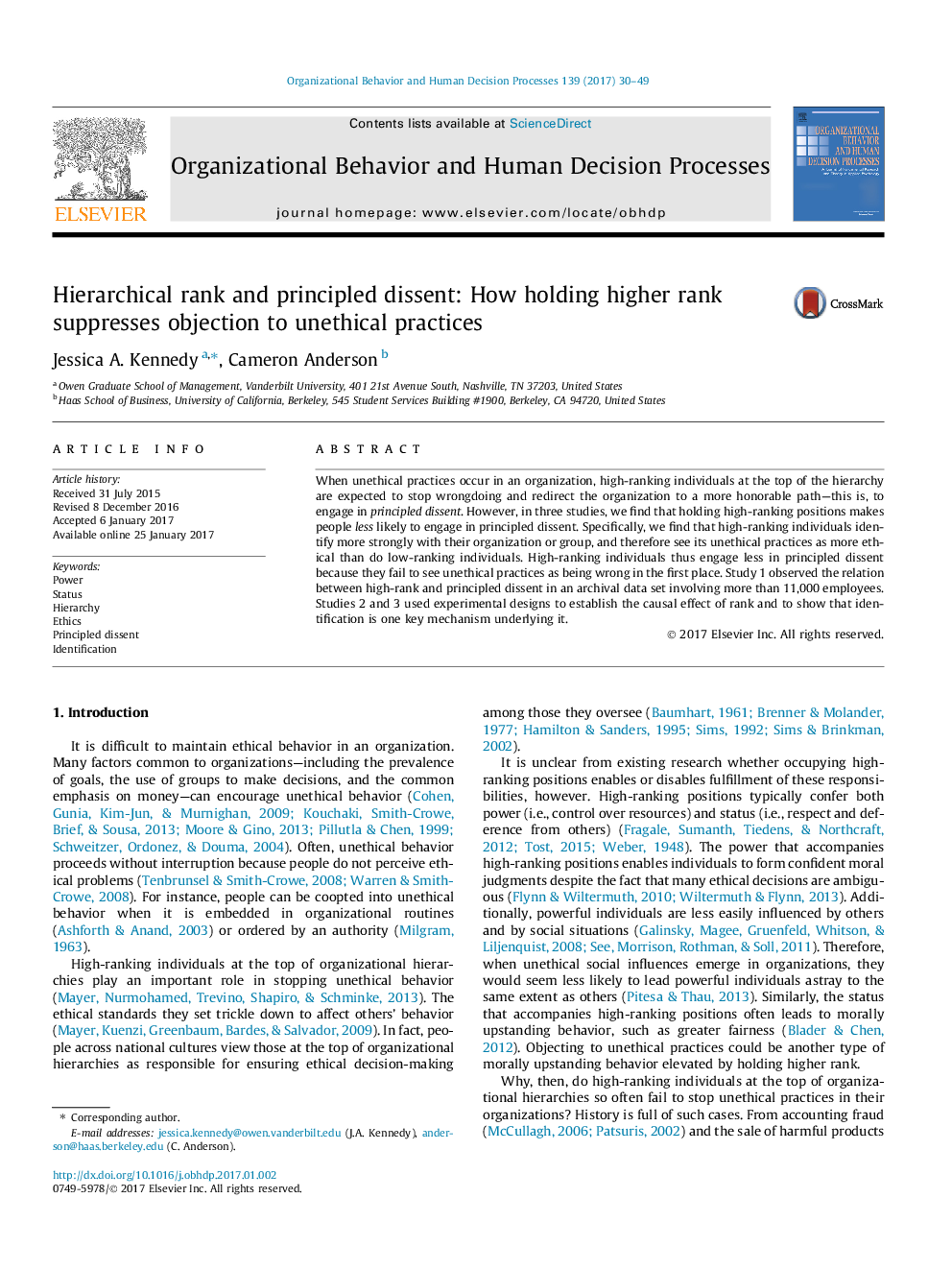| Article ID | Journal | Published Year | Pages | File Type |
|---|---|---|---|---|
| 5035343 | Organizational Behavior and Human Decision Processes | 2017 | 20 Pages |
â¢We investigate the relationship between hierarchical rank and principled dissent.â¢Holding a higher-ranking position reduces principled dissent.â¢Holding higher rank increases identification with the group.â¢Holding higher rank leads people to view their group's practices as more ethical.â¢Changes in identification and ethical views jointly help to explain the effect.
When unethical practices occur in an organization, high-ranking individuals at the top of the hierarchy are expected to stop wrongdoing and redirect the organization to a more honorable path-this is, to engage in principled dissent. However, in three studies, we find that holding high-ranking positions makes people less likely to engage in principled dissent. Specifically, we find that high-ranking individuals identify more strongly with their organization or group, and therefore see its unethical practices as more ethical than do low-ranking individuals. High-ranking individuals thus engage less in principled dissent because they fail to see unethical practices as being wrong in the first place. Study 1 observed the relation between high-rank and principled dissent in an archival data set involving more than 11,000 employees. Studies 2 and 3 used experimental designs to establish the causal effect of rank and to show that identification is one key mechanism underlying it.
